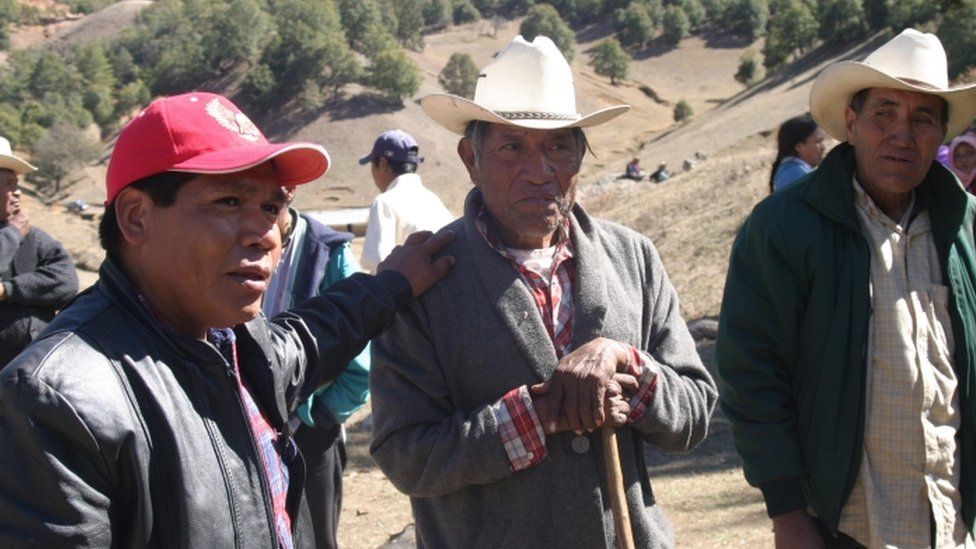Mexican anti-logging activist Isidro Baldenegro killed
- Published

A prominent Mexican environmentalist has been shot dead in his home state of Chihuahua after receiving death threats.
Isidro Baldenegro had spent many years organising peaceful protests against illegal logging in the Sierra Madre mountains.
In 2005 he won the prestigious Goldman environmental prize.
A UK-based watchdog, Global Witness, says 33 activists were killed in Mexico in the five years up to 2015.
Isidro Baldenegro was a community leader for Mexico's indigenous Tarahumara people and was one of the country's most prominent environmental activists.
He had recently returned to his home village after receiving death threats against himself and his family.
Mr Baldenegro was the second recipient of the Goldman Prize, given to grassroots activists, to be murdered in less than a year.
Honduran campaigner Berta Caceres, who won the prize in 2015 for her battle against the construction of a dam that threatened to displace indigenous communities. was killed in March 2016.
The western Sierra Madre mountains are one of the world's most bio-diverse ecosystems and include four canyons each bigger than the Grand Canyon. They are the ancestral land of the Tarahumara people.
These forests have been targeted by illegal loggers helped by corrupt officials and landowners, forcing the Tarahumara into progressively smaller and more isolated areas.
As a young boy, Isidro Baldenegro witnessed the murder of his father as he took a stand against logging.
In 1993 he founded a grassroots NGO to fight deforestation which attracted national attention.
In 2002, he organised a series of blockades and marches which forced the government to temporarily suspend logging and a year later was imprisoned for 15 months on charges of weapon and drugs possession.
Human rights activists say his detention was fabricated by a network of state officials, landowners and criminal bosses involved in logging.
It triggered widespread international condemnation and he was released in 2004.
- Published20 April 2015
- Published20 June 2016